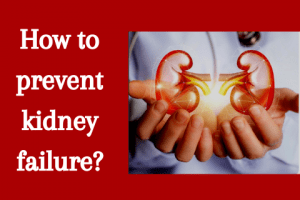Kidney disease is an issue that impacts millions of people worldwide. By filtering waste and extra fluid from the blood, these essential organs play an essential role in maintaining overall health. Effective kidney disease therapy and the avoidance of consequences depend on early identification. In this post, we’ll go over 10 signs that you might have kidney disease. Knowing these indicators will make it easier for you to identify potential problems and get timely medical care.

Signs of Kidney Disease
Weakness and Tiredness indicator of kidney diseases
The presence of persistent fatigue and weakness may be a sign of kidney disease. A diminished kidney’s ability to filter toxins and waste from the blood results in anemia and reduced oxygen delivery, both of which can contribute to general fatigue.

Alterations in Urination
Changes in urine patterns are frequent signs of renal disease. Some of the symptoms are:
- Increased frequency of urinating, especially at night (nocturia)
- A problem starting to urinate.
- Frothy or foamy urine
- Hematuria (blood in the urine)
- Urine with a dark color
Swelling
The control of fluid balance is another function of the kidneys. If they are compromised, too much sodium and fluid can build up, causing swelling in the feet, ankles, and even around the eyes (periorbital edoema).
High Blood Pressure
By regulating fluid balance and secreting hormones, the kidneys assist in managing blood pressure. This process can be hampered by kidney illness, which can result in hypertension (high blood pressure). On the other hand, uncontrolled hypertension may cause damage to the kidneys, starting a hazardous cycle.
Chronic Back Pain
The upper back and sides, where the kidneys are located, may experience pain or discomfort because of chronic renal disease. It’s essential to remember that this discomfort may not just be muscular because it may be accompanied by other symptoms.

Discomfort And Vomiting
Vomiting and nausea can result from a buildup of waste materials in the blood brought on by poor renal function. Over time, these symptoms may also cause a decrease in appetite and weight loss.
Read Also: What are the main Causes of Kidney Failure?
Breathing Problems
Shortness of breath can result from an accumulation of extra fluid in the lungs due to impaired renal function. This is most apparent when moving about or when resting.
Intense Metallic Flavor
Food may start to taste metallic or unpleasant because of kidney disease. This may result in a drop in appetite and a subsequent loss of weight.
Restless And Cramping In The Muscles
Kidney dysfunction-related electrolyte imbalances can cause cramping, twitching, and even restless leg syndrome in the muscles. These signs can interfere with sleep.
Changes to Skin and Hair due to kidney disease
- Skin and hair changes associated with kidney illness include:
- Itchy, dry skin
- Broken bones or discoloration of the skin
- excessive skin irritations or rashes
- Hair that is thinning and fragile
Conclusion
Early intervention and effective management of kidney disease depend on the ability to recognize the symptoms. It’s necessary to seek immediate medical advice if you experience any of the symptoms. You can promote the health of your kidneys and your general well-being by getting regular checkups, leading a healthy lifestyle, controlling underlying illnesses, and drinking plenty of water. Remember that the effectiveness of treatment for renal illness can be significantly impacted by immediate action.
FAQs
Can renal disease affect the way you urinate?
Increased frequency, difficulty urinating, frothy urine, blood in the urine, and dark urine are all symptoms of renal diseases.
Do renal issues and high blood pressure go hand in hand?
High blood pressure can be brought on by kidney disease, and uncontrolled hypertension can potentially cause kidney damage.
How do skin and hair conditions affect kidney disease?
Dry, itchy skin, skin discoloration, rashes, and thinning hair can all be symptoms of kidney illness.
Can muscle cramps and restless legs be brought on by kidney disease?
Yes, electrolyte imbalances brought on by kidney disease can cause cramping, twitching, and restless leg syndrome.






